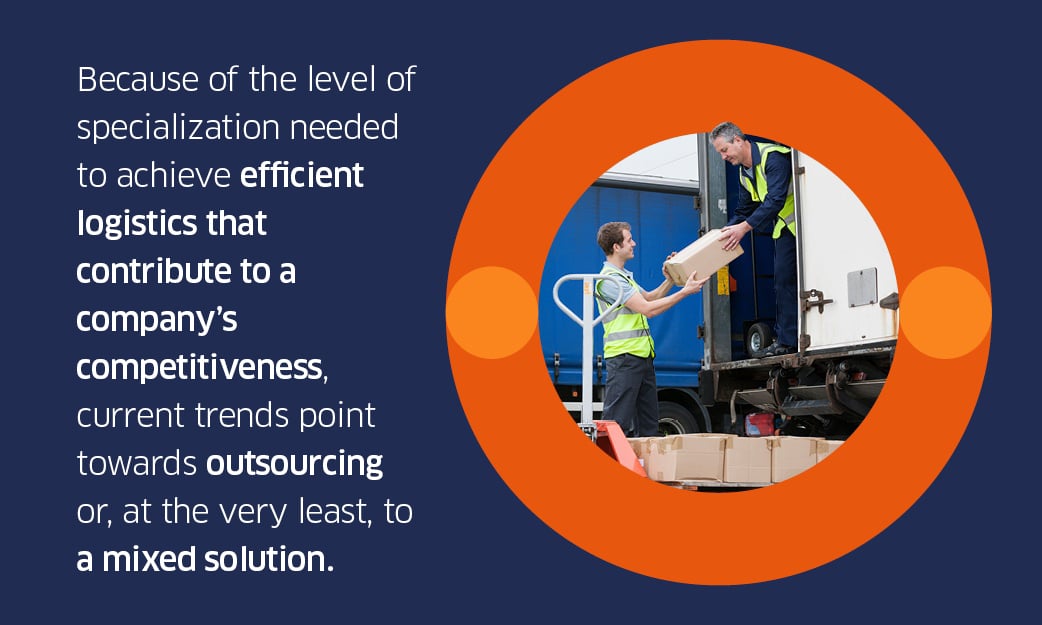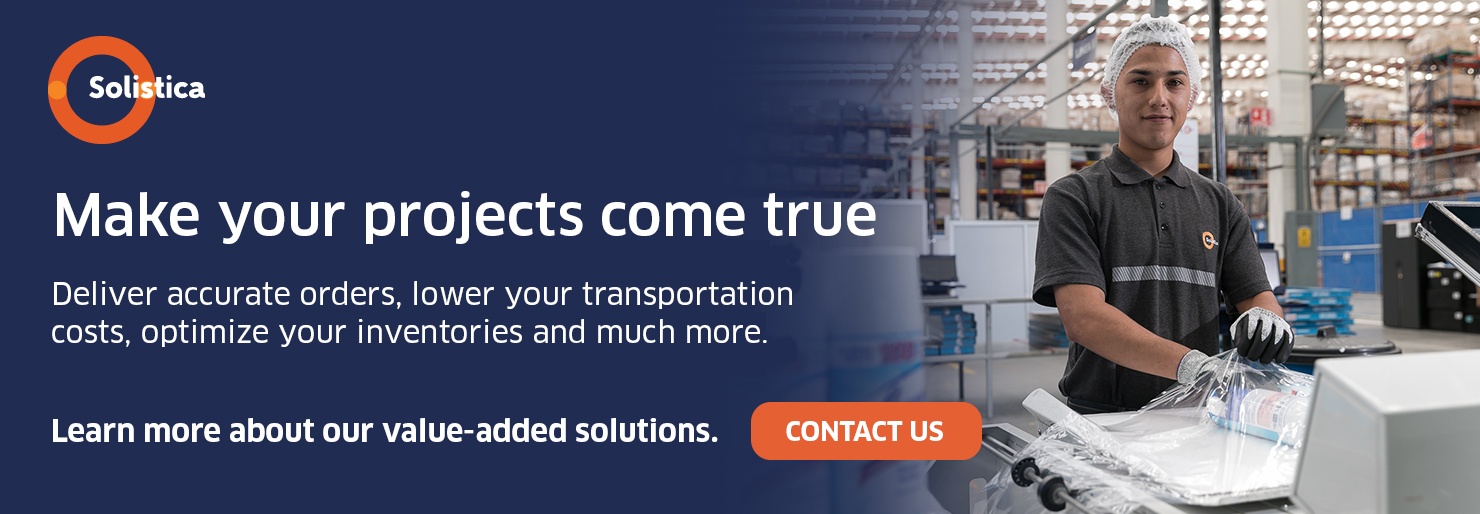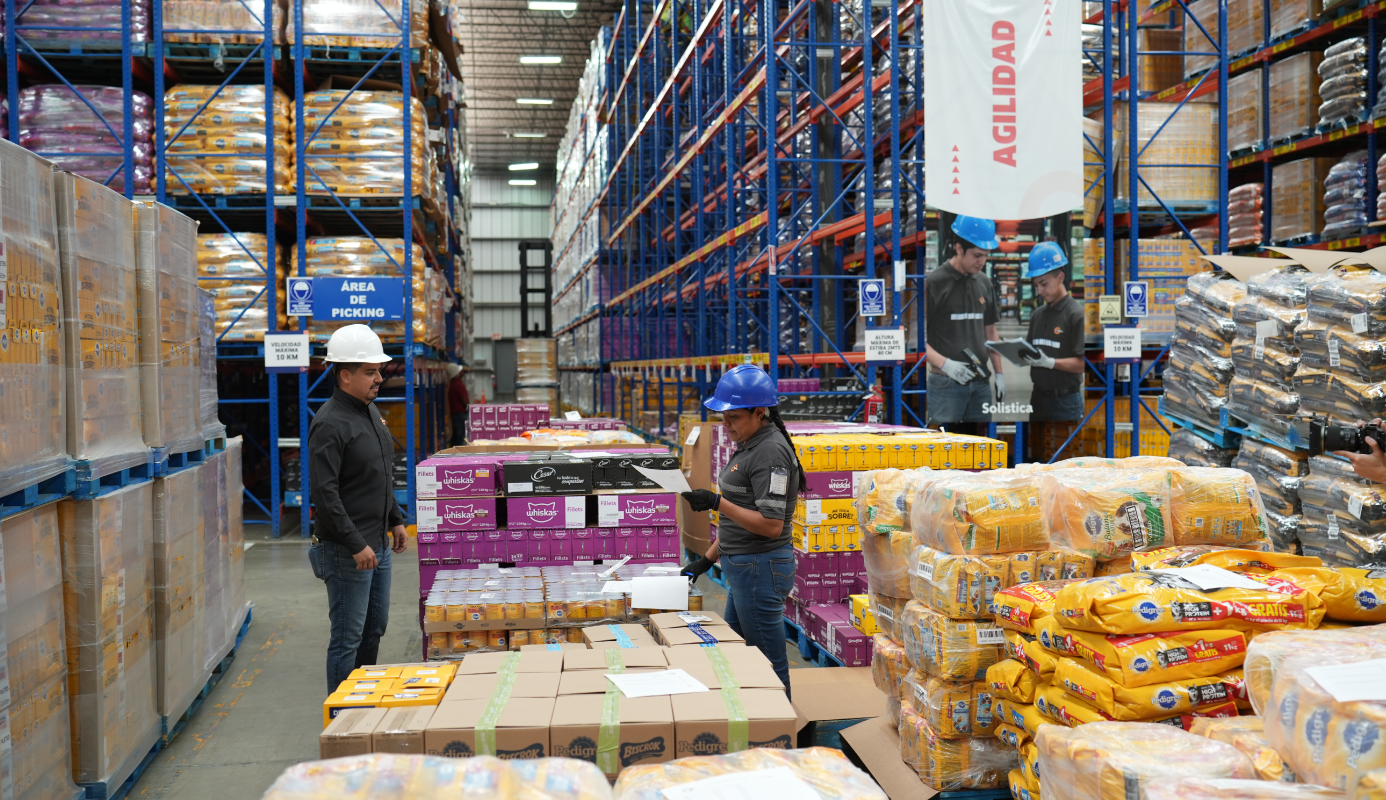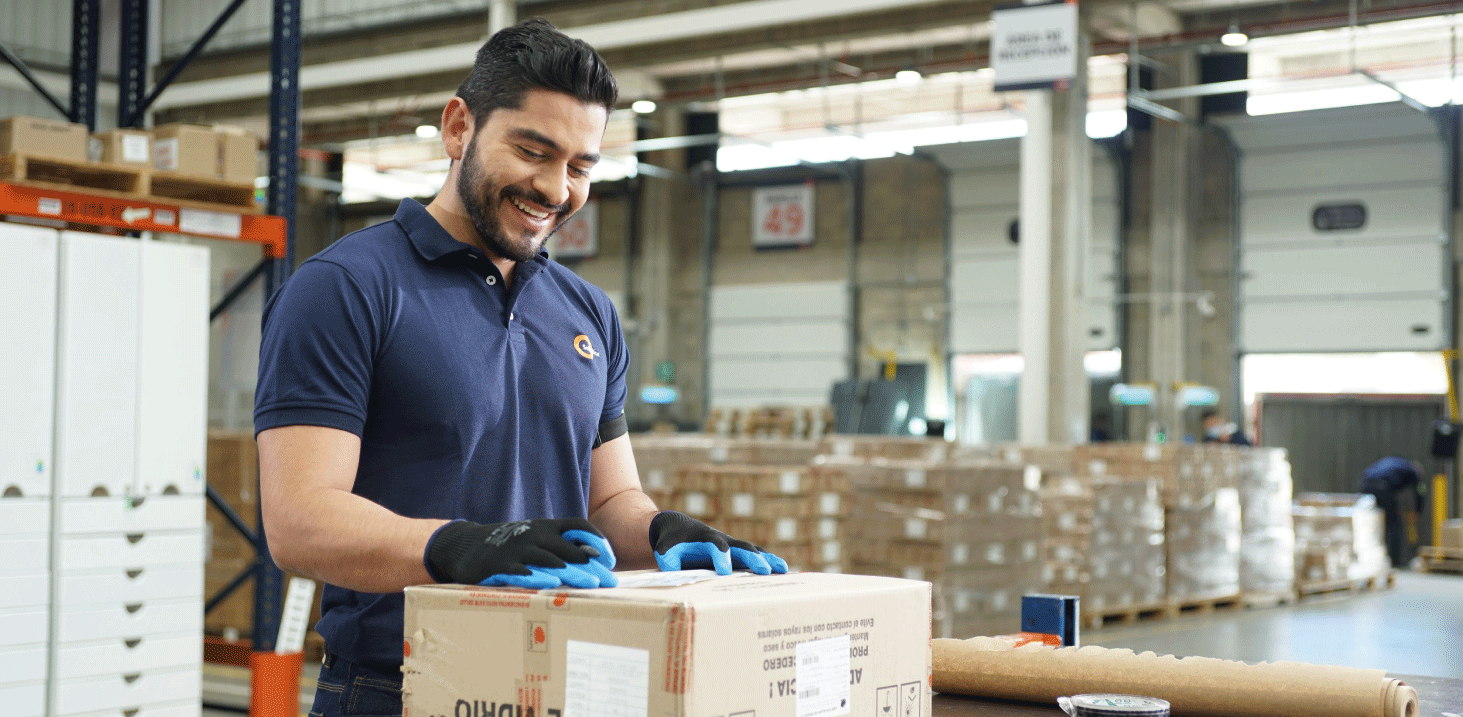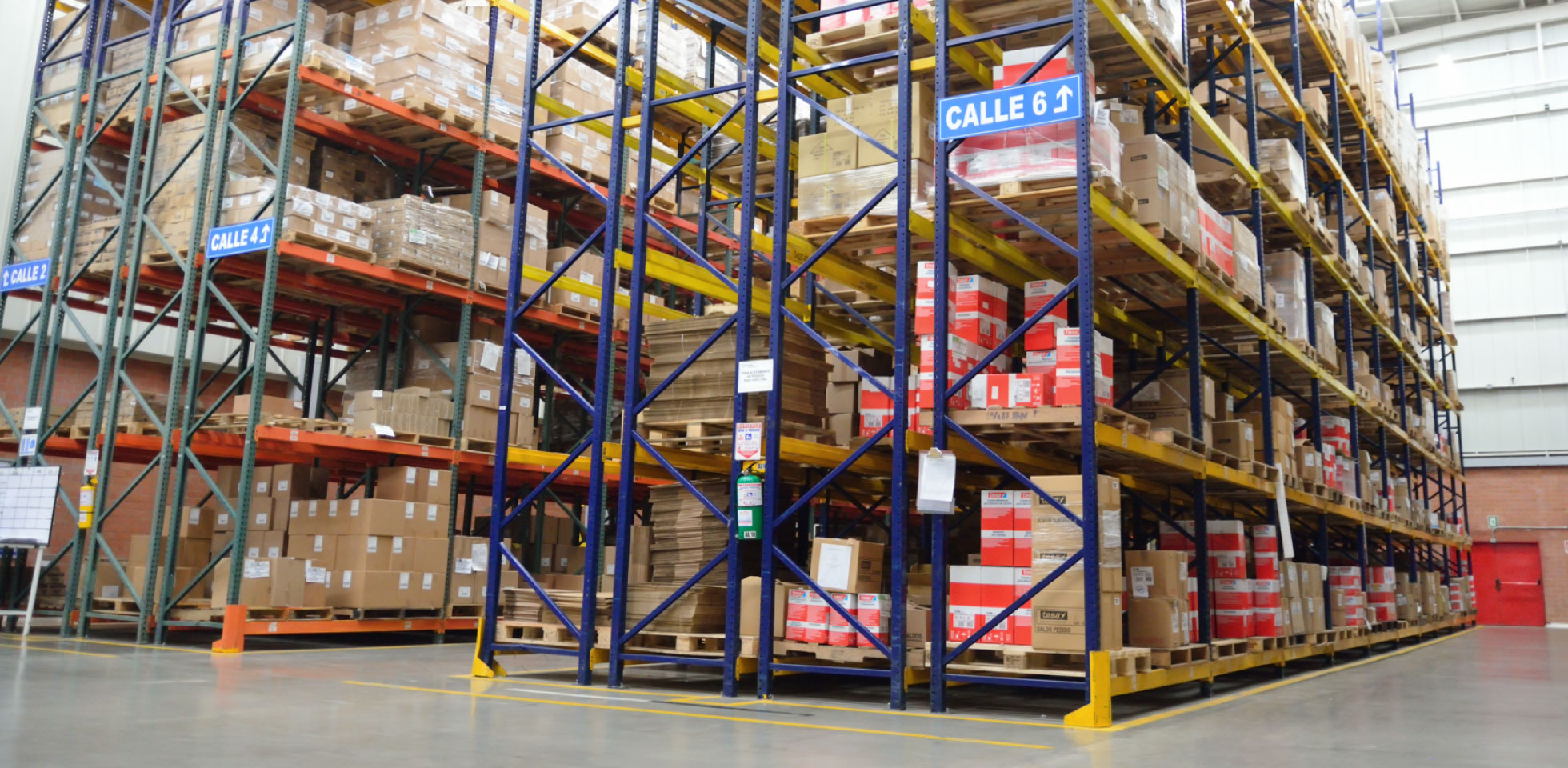Manufacturers often find themselves choosing whether they should carry out their storage, distribution, and transport processes internally or outsource them to a logistics specialist.
In both scenarios, the goal is to achieve an efficient supply chain from the moment raw material arrive at your warehouse until you deliver the finished products to your markets.
These activities should consider the following factors, among others:
- Monitor the goods to avoid damages or losses.
- Carry out on-time deliveries with products in good condition.
- Get insurance to protect your capital.
- Get the certifications you need to operate.
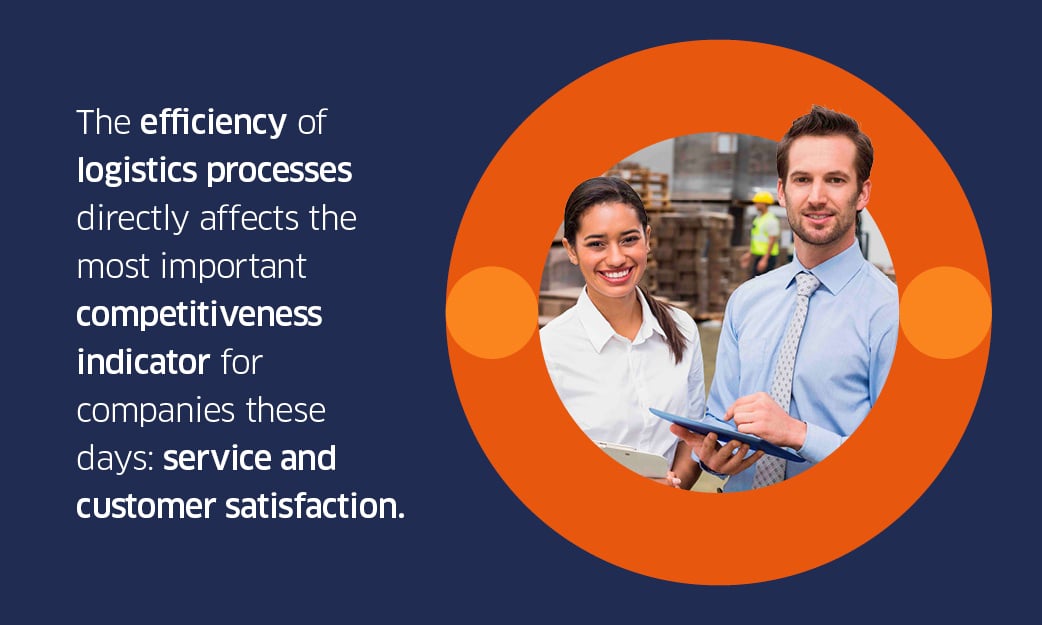
If you are currently deciding whether to carry out your own logistics or outsource the function, you should base your decision on the assessment of many variables, including costs, and on how each option benefits your company.
In-house Logistics
Building warehouses and buying vehicles to distribute your products opens several possibilities:
- You control the whole logistics operation, from goods handling to customer service, making sure each of the chain’s stages meets your business goals and the expectations of your final clients.
- You have the flexibility to set delivery dates and times, working according to your own capacities and the demand of your customers.
- You can improve costs by being more efficient. Usually, storage and transport services charge a fixed percentage on the sales price or a fixed price per unit. By managing logistics internally, you can forecast your expenses and benefit from the discounts you negotiate for these activities.
- You get valuable and first-hand information on the efficiency of your supply chain, inventory turnover, and customer feedback so you can find opportunities for improvement for both products and distribution.
These are important aspects to consider when you choose to carry out your logistics processes internally:
- You need to make large investments in storage facilities, vehicles, and experienced staff to help you access customers and build trust for your commercial proposal, which takes time to accomplish.
- Operational costs include salaries and benefits for warehouse staff and drivers, as well as fuel and vehicle maintenance expenses; all of these become fixed costs, which can hurt your profitability.
- Distribution may turn complicated and costly if your customers are all over the country or abroad.
- You should put time and effort into planning your distribution, training your drivers and warehouse staff, balancing your workloads, negotiating with retailers, or preparing special orders. All these activities aren’t part of your core business and distract you from reaching your strategic business goals.
Outsourced Logistics
When you choose to hire the services of a logistics supplier you benefit from its experience, knowledge, and from the economies of scale that result from its alliances with other companies.
This way of managing logistics is characterized by supplying the following benefits to your supply chain:
- You don’t have to invest capital on building your own distribution network and save on all the fixed costs and expenses related to the risks of carrying out this activity.
- Your costs become variable but predictable. You can benefit from paying only for those services you need according to the demand for your products, because when you analyze and forecast your production you can foresee the costs of the outsourced services, and thus, plan your operation’s budget more efficiently.
- You gain access to the most advanced technologies for tracking and recording your goods. Betting on specialized logistics services translates into accessing innovations in processes and services that, if tried on your own, would be impossible to adopt.
- Process automation helps you avoid human errors and allows for a constant gathering and expert analysis of operation data, which lets you implement improvements in time.
- The continuous training and the knowledge of a dedicated team makes it easier for you to manage your relationship with clients and venture into new markets.
- If you are an international company, you gain an ally with experience in imports and exports procedures.
- You access a vast network of strategic partners, which ensures a joint effort towards customer service in any market.
- You can delegate tasks that are non-essential for meeting your company’s strategic and growth goals.
The following are some of the issues you must consider when assessing whether you should hire the services of a logistics supplier:
- You will depend on your logistics supplier completely for the last stage of the supply chain: delivery, which is of the utmost importance for your company’s competitiveness. Your clients will see any mistake made by your logistics supplier as yours because they don’t know how your company carries out its internal processes and are unaware of the middleman’s identity. At the end of the day, it is your reputation that is on the line.
- Some issues may arise when negotiating costs. You might think that you will lower costs if you outsource processes; however, savings depend on how effectively you negotiate the terms of the agreement.
- The success of outsourcing depends on a close and coordinated relationship between your company and your logistics supplier, and this doesn’t always flow smoothly because it takes time, effort, meetings, and negotiations.
Essential elements for efficient logistics
When the time comes to choose whether to carry out your logistics process in house or outsource it, you must analyze the volume of your products and the complexity of your supply chain and make sure the logistics supplier offers these services:
- Process Management Automation. Your supplier may offer process control platforms to eradicate mistakes and gain access to relevant data that helps you fix operational issues immediately.
- Thorough and updated knowledge of logistics regulations and legislation, especially regarding your products’ domestic and international distribution. An erroneous classification of your products, the omission of a clause, or the non-compliance of a regulation may lead to the payment of high fees or unnecessary taxes.
- The right storage facilities and freight vehicles for your products, guaranteeing the integrity of your goods and a correct inventory turnover.
- See logistics as a comprehensive and strategic operation that helps your company be more efficient and more profitable. If you carry out your logistics in house you should align them to the company’s goals; if you outsource them, your logistics supplier must see itself as equally responsible for reaching your company’s goals.
After all these considerations, we can certainly say there isn’t an exact formula for deciding whether to carry out the logistics process in house or outsource it. The answer lies on the definition of your specific needs and the demands of your clients.
An example of this is, if you were to hire the services of an international logistics supplier with a distribution center near a land border or a seaport: it would give you an advantage by storing goods closer to the final client and meet its needs faster, and it would also make it easier for you to process imports and exports documents because you’d be in the hands of a foreign trade expert.
When you decide to outsource all or part of your logistics processes you can benefit not only from lower costs and from the supplier’s know-how but also – if you pick the right logistics partner that gives you access to technology, tools, and process control –ensure the visibility of your products throughout the supply chain.
A company like Solistica has state-of-the-art technology, the ability to listen to your needs and adapt to them while contributing knowledge and experience to guarantee the efficiency of your logistics processes and your clients’ satisfaction.
If you are looking for a strategic partner for your logistics effort, choose one that offers efficient communication, transparent coordination of transport and distribution activities, and constant monitoring of your products throughout the supply chain.
*This blog was originally published on December 7, 2018 and modified on June 1st, 2022.

